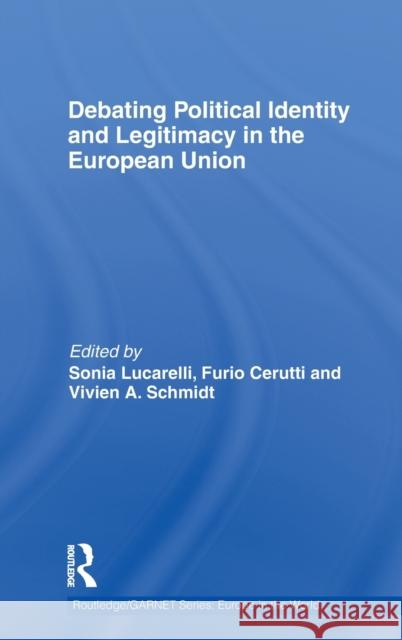Debating Political Identity and Legitimacy in the European Union » książka
Debating Political Identity and Legitimacy in the European Union
ISBN-13: 9780415551007 / Angielski / Twarda / 2009 / 214 str.
Debating Political Identity and Legitimacy in the European Union
ISBN-13: 9780415551007 / Angielski / Twarda / 2009 / 214 str.
(netto: 741,76 VAT: 5%)
Najniższa cena z 30 dni: 705,23
ok. 16-18 dni roboczych.
Darmowa dostawa!
How can we conceptualize identity and legitimacy in the context of the European union? What is the role of narratives, political symbols, public debate and institutional practices in the process of identity formation and legitimacy consolidation? Debating Political Identity and Legitimacy in the European Union addresses these questions and brings together high profile scholars from various disciplinary backgrounds to debate the ontological and epistemological aspects of research on identity and legitimacy formation in the EU. Part I investigates key elements such as the relationship between Europeanization' of the EU member states and its effect on the political identity of their citizens; the relationship between the politicization of the EU and processes of identity and legitimacy formation; and the indispensability of European identity for legitimizing the EU. Part II looks at pathways to identity formation and legitimacy construction in the EU by considering alternative types of constitutional legitimacy; political symbolism; Europeanization and politicization of the debate on EU focusing on the foreign policy domain. Bringing together a wide but coherent range of high profile perspectives, this book will of interest to students and scholars of European studies, Political Science, Philosophy, Sociology and Law.
It is widely recognised that the fallout from the failure of the referenda on the Constitutional Treaty and from the enlargement of the EU to Central and East Europe could very well develop into an existential crisis for the integration process.
This book examines the processes related to the development of identity and legitimacy and their interrelationships, in order to find out how far a political enterprise as tortuous and open-ended as the European process still has a chance to go on and consolidate. It brings together a cluster of high profile scholars, from various disciplinary backgrounds to debate the ontological and epistemological aspects of research on identity and legitimacy formation in the EU.
- Part I offers four different general approaches to that relationship, and to the connected issue of democracy.
- Part II specifically focuses on legitimacy in the context of related categories such as power, citizenship, Constitution and (global) governance. and is highly interdisciplinary.
- Part III looks first at what features emerge with regard to the identity-legitimacy nexus in the foreign policy domain, first in terms of the conduct of foreign policy and second in terms of the EU image abroad. Finally the authors focus on the transversal category of political symbol, without which identity can scarcely be grasped, in a critical attitude towards EU policies on this.
Bringing together a wide but coherent range of high profile perspectives on the relationship between identity and legitimacy in the EU, this book will of interest to students and scholars of European studies, political science, philosophy, sociology and Law.











